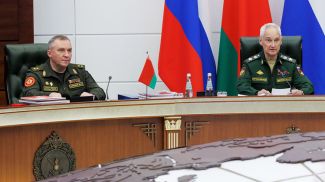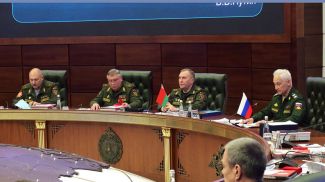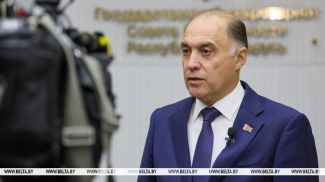MINSK, 28 September (BelTA) - More than 55,000 citizens of Ukraine arrived in Belarus after the start of Russia's special military operation, about half of them have already received residence permits, Aleksei Begun, Head of the Citizenship and Migration Department of the Belarusian Ministry of Internal Affairs, told BelTA's YouTube channel.
Aleksei Begun said that the first influx of migrants from Ukraine to Belarus occurred after the conflict in 2014. Then, taking into account the open state border, more than 160,000 citizens of Ukraine arrived in Belarus. According to the expert, some of them later returned home, some moved to third countries and some stayed for permanent residence in Belarus.
“A new wave of arriving Ukrainian citizens arose after the start of the special military operation of the Russian Federation in Ukraine, when more than 55,000 Ukrainian citizens arrived in Belarus since 24 February 2022. They received both subsidiary protection status and temporary asylum, and the opportunity to work, reside and subsequently naturalize. At present there are over 26,000 citizens of Ukraine in Belarus, residing only on the basis of residence permits. In addition, about 5,000 Ukrainians have a temporary residence permit, i.e. a temporary residence permit for one year,” the head of the department said.
According to the president's instructions, given in August 2021, on the naturalization of the Ukrainians, the Interior Ministry considered more than 5,800 applications of Ukrainian citizens for citizenship. 4,900 applications out of these have already been approved and the Ukrainians have become citizens of Belarus, said Aleksei Begun. In accordance with the presidential decree, a simplified procedure for obtaining a permanent residence permit and special work permits for Ukrainians is in place. They can get assistance in connection with the fact that they are in a difficult situation. “International organizations conduct regular monitoring among Ukrainians who stay on the territory of our state and note a very friendly attitude, first of all, on part of state authorities, as well as non-governmental organizations that work on Ukrainian issues,” the head of the department said.













